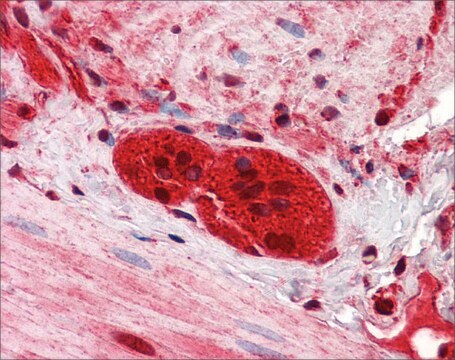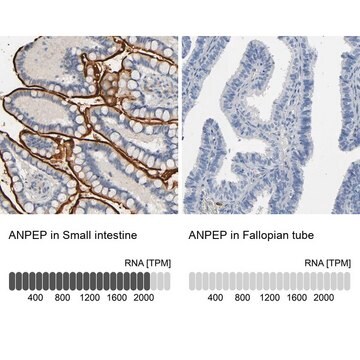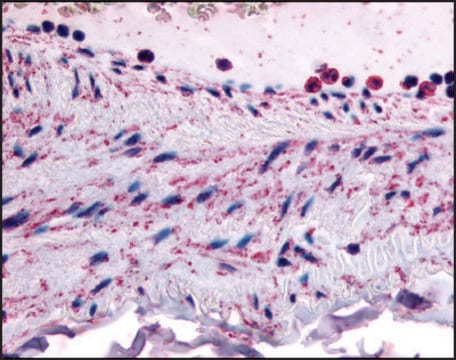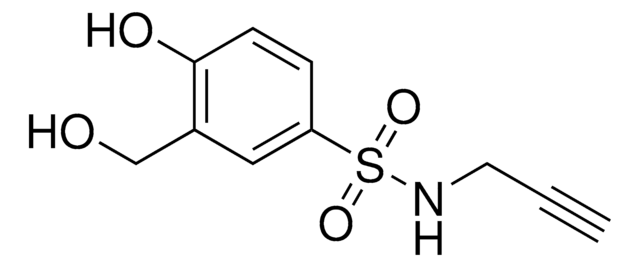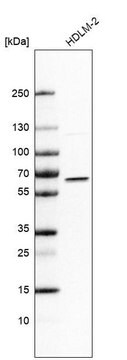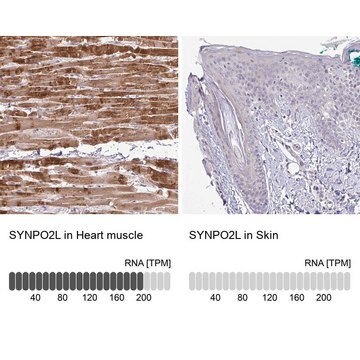SAB4200588
Anti-CHD1 (C-terminal) antibody from rabbit
affinity isolated antibody
Synonym(e):
ATP-dependent helicase CHD1, chromodomain helicase DNA binding protein 1
About This Item
Empfohlene Produkte
Biologische Quelle
rabbit
Antikörperform
affinity isolated antibody
Antikörper-Produkttyp
primary antibodies
Form
buffered aqueous solution
Speziesreaktivität
human, mouse
Konzentration
~1.0 mg/mL
Methode(n)
immunoblotting: 2.5-5.0 μg/mL using whole extracts of mouse P19 cells.
immunofluorescence: 2.5-5.0 μg/mL using human HeLa cells.
UniProt-Hinterlegungsnummer
Versandbedingung
dry ice
Lagertemp.
−20°C
Posttranslationale Modifikation Target
unmodified
Angaben zum Gen
human ... CHD1(1105)
mouse ... Chd1(12648)
Allgemeine Beschreibung
Immunogen
Anwendung
Biochem./physiol. Wirkung
Physikalische Form
Haftungsausschluss
Sie haben nicht das passende Produkt gefunden?
Probieren Sie unser Produkt-Auswahlhilfe. aus.
Lagerklassenschlüssel
10 - Combustible liquids
Flammpunkt (°F)
Not applicable
Flammpunkt (°C)
Not applicable
Hier finden Sie alle aktuellen Versionen:
Analysenzertifikate (COA)
Die passende Version wird nicht angezeigt?
Wenn Sie eine bestimmte Version benötigen, können Sie anhand der Lot- oder Chargennummer nach einem spezifischen Zertifikat suchen.
Besitzen Sie dieses Produkt bereits?
In der Dokumentenbibliothek finden Sie die Dokumentation zu den Produkten, die Sie kürzlich erworben haben.
Unser Team von Wissenschaftlern verfügt über Erfahrung in allen Forschungsbereichen einschließlich Life Science, Materialwissenschaften, chemischer Synthese, Chromatographie, Analytik und vielen mehr..
Setzen Sie sich mit dem technischen Dienst in Verbindung.
